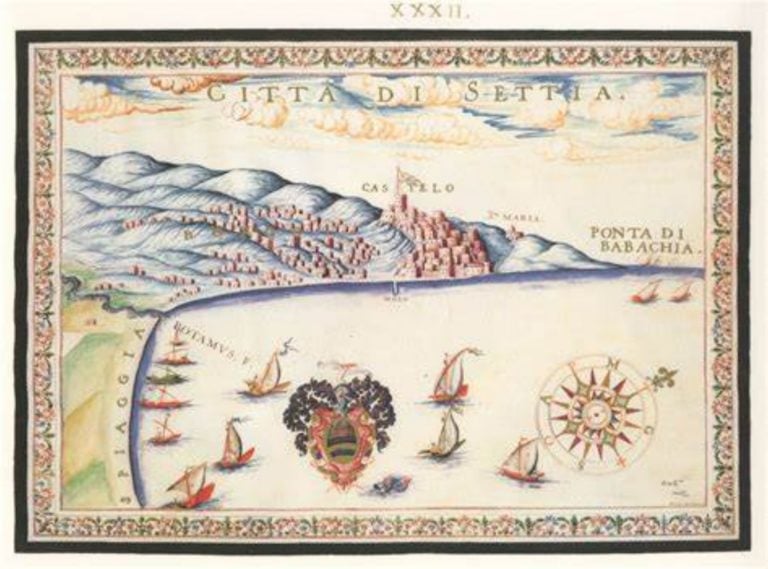In Greece, 2019 has been officially declared ‘Erotokritos Year’, ‘Έτος Ερωτόκριτου’. But what is Erotokritos? And why is a year dedicated to it?
Some people will remember Erotokritos from the titles of songs recorded decades ago by the great Cretan artist Nikos Xylouris, and more recently by Giannis Haroulis, among many others.
The pieces we usually hear are tiny extracts from a vast poem, in over 10,000 lines. Erotokritos was written around the year 1600 by a man called Vitsentzos Kornaros, from Sitia in eastern Crete. Many people regard it as the greatest work of early modern Greek literature.
Set in ancient Athens, the poem tells the story of the love between the young hero Erotokritos (or Rotokritos) and the princess Aretousa. Rotokritos has every imaginable accomplishment: he has wisdom beyond his years, is a talented painter and singer, and demonstrates his valour and fighting abilities in a spectacular joust. But since he is not of royal blood, King Iraklis, Aretousa’s father, does not consider him a possible son-in-law. When Rotokritos’ father makes the proposal on his son’s behalf, the king sends the young man into exile. Later, since Aretousa refuses to accept her father’s choice of husband, he throws her into prison.
But when an army led by a foreign king invades Athenian territory, Rotokritos returns in disguise and saves the life of his sovereign. The rival monarchs agree to end the war by a duel between two champions. The disguised Rotokritos is chosen to represent Athens, and wins, despite being severely wounded. When he recovers, the king offers him whatever reward he desires, and he asks to be allowed to marry the imprisoned princess. In the end the disguised hero reveals his true identity, Iraklis recognises his error, Rotokritos and Aretousa marry and become king and queen of Athens, and all live happily ever after.
READ MORE: Dr Alfred Vincent on the development of El Greco’s work

More than a story
Yet there is more to Erotokritos than this simple, romantic story. As Kornaros tells us in his prologue, the poem is about the changes brought by time and human fortunes, the upheavals and anguish of war, the power of love and friendship. The poet develops countless lyrical variations on the theme of love. Prominent too are the scenes of heroic conflict in the episodes of the joust and the war.
But that is still not all. The characters’ names invite an allegorical reading of the poem.
The name (E)Rotokritos, in Kornaros’ Greek, suggests someone who is both judged and tormented by love. As for the name Aretousa, it also occurs in the form Areti, “virtue”. This word suggests something supremely good, something that we should be aiming for in life. That, then, is the object of our hero’s aspirations. Kornaros offers his poem as a parable: a person pursuing their true love with integrity, through all obstacles, will be rewarded in the end. If on the surface that seems naively optimistic, we might try looking more deeply into what Kornaros might be suggesting.
Though formally set in Athens, in ancient times, Erotokritos does not re-create a place and time like a historical film or novel. Its setting is not realistic but symbolic. The great joust which occupies a large section of the poem is like a historical pageant, with participants representing different areas and periods, including Crete, Macedonia, and Byzantium, as well as Athens. Other jousters come from Cyprus and from parts of southern Greece and the islands which had recently been ruled by Venice or some other western power. As well, there is a Slav from Dalmatia and a Turk (“Karamanian”) from Asia Minor, who is killed by the Cretan prince Charidimos in a separate duel before the joust. All the competitors are young lords or princes except for Rotokritos, the Athenian, who is the final winner. Personal qualities prevail over high birth and wealth.
READ MORE: Mysteries of Medieval Mystras, Byzantium’s Indian summer and the birthplace of Modern Greece
Next instalment
A rich work indeed, with multiple meanings. But what was its background? Who was Kornaros? And what was the impact of his work? Next week we put Erotokritos in context.
- Dr Alfred Vincent is a researcher and academic who has taught Modern Greek at the University of Sydney. He has given lectures and seminars at institutions around the world and has been actively involved in organisations of interest to the Greek Community.